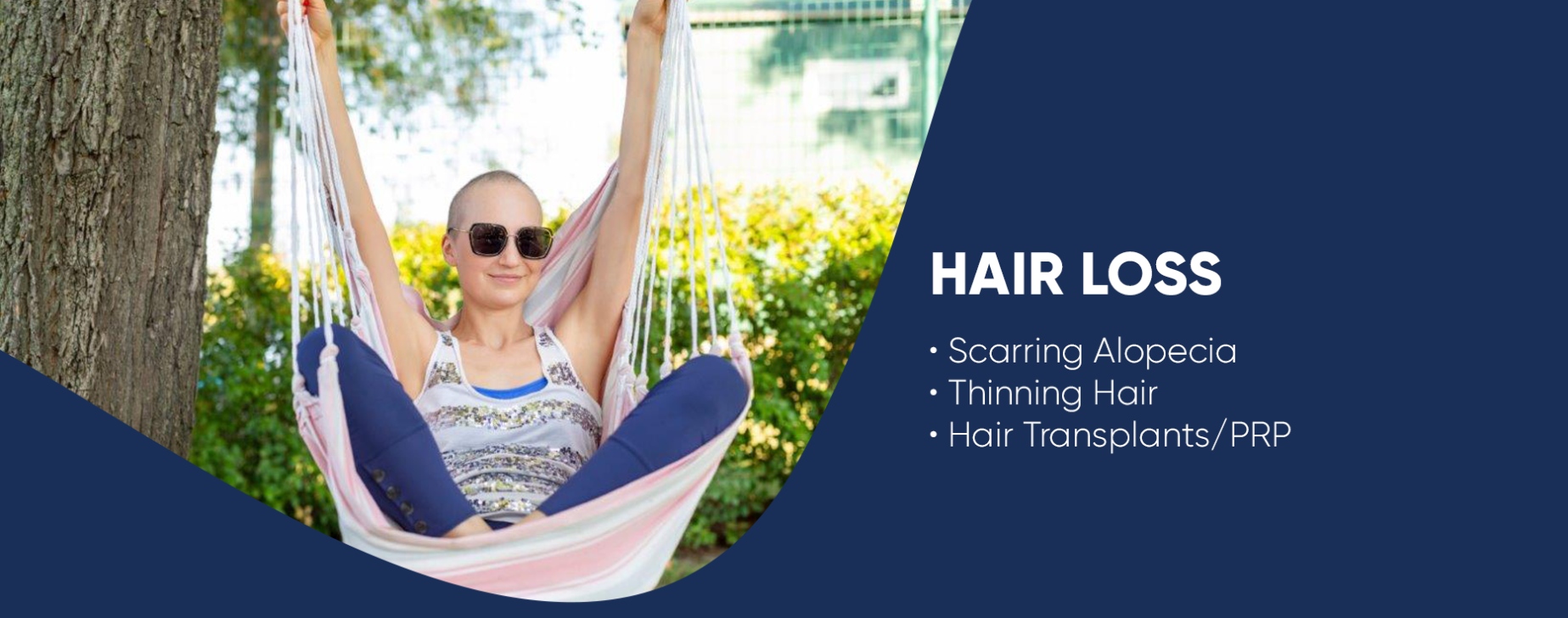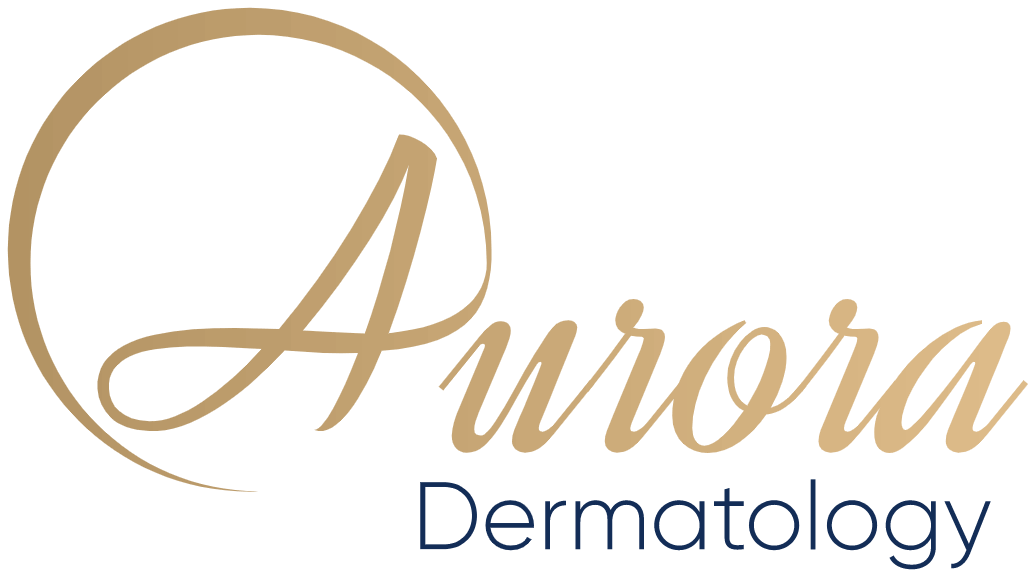

Hair Treatments
How do I know what treatment to have?
As there are many different types of hair loss, it’s important to be assessed by a hair specialist comprehensively before embarking on a treatment.
At Aurora Dermatology your hair loss condition diagnosis may involve:
At Aurora Dermatology your hair loss condition diagnosis may involve:
A blood test- which might help uncover medical conditions that can cause hair loss
A pull test – where your hair is gently pulled to see how easily it comes out, and this helps determine the stage of the hair growth cycle.
Microscopy – the use of special instrument that examines hair at the base.
A scalp biopsy – this involves a skin scrape sample of the scalp that is examined under the microscope to rule out any infection that may be causing your hair loss.
A comprehensive clinical history where you will be asked about your patterns of hair loss, Was is sudden or over a long time? What makes the hair loss worse or better? Are there other people in your family who have experienced hair loss? What medications do you take and have they made your hair loss worse?
What are the hair loss treatments you offer at Aurora Dermatology?
We offer a comprehensive range of treatments including:
Teaching patients how to modify hair habits, diet and lifestyle – which includes techniques to treat hair more gently, improving diet by reducing carbohydrates and eating more protein; supplementing with zinc, iron and B vitamins.
Topical Treatments such as Minoxidil (Rogaine) an over the counter (nonprescription) drug that comes in liquid, foam and shampoo forms.
To be most effective, apply the product to the scalp skin once daily for women and twice daily for men. Many people prefer the foam applied when the hair is wet.
Products with minoxidil help many people regrow their hair or slow the rate of hair loss or both. It may take at least six months of treatment to prevent further hair loss and to start hair regrowth.
It may take a few more months to tell whether the treatment is working for you. If it is helping, you’ll need to continue using the medicine indefinitely to retain the benefits.
Possible side effects include scalp irritation and unwanted hair growth on the adjacent skin of the face and hands.
Possible side effects include scalp irritation and unwanted hair growth on the adjacent skin of the face and hands.
Oral Treatments – such as Finasteride (Propecia). This is a prescription drug for men, taken daily as a pill.
Many men taking finasteride experience a slower rate of hair loss and some may experience new hair growth.
Finasteride may not work as well for men over the age of 60.
Rare side effects of finasteride include diminished sex drive and sexual function and an increased risk of prostate cancer. Women who are or may be pregnant need to avoid touching crushed or broken tablets.
Rare side effects of finasteride include diminished sex drive and sexual function and an increased risk of prostate cancer. Women who are or may be pregnant need to avoid touching crushed or broken tablets.
Oral Minoxidil
Hormons
Steroid injections – Steroid can be injected into the scalp in some people with alopecia caused by immune system activity.
Platelet Rich Plasma (PRP). This is one of our signature treatments and is a relatively recent development in hair treatment for androgenetic alopecia where the patient’s blood is drwan, spun through a centrifuge to concentrate the platelets and plasma, which contain growth factors. This is injected into the scalp skin. For best results, treatment is conducted over a number of sessions, several weeks apart.

Hair transplant
For hair loss that is severe or not responding to other therapies, surgical transplantation of hair follicles to areas of hair loss can be undertaken.
This is often a treatment of choice for male patients with androgenetic alopecia and generally combined with oral therapy for optimal results. Findout more about our signature Hair Transplants here.

